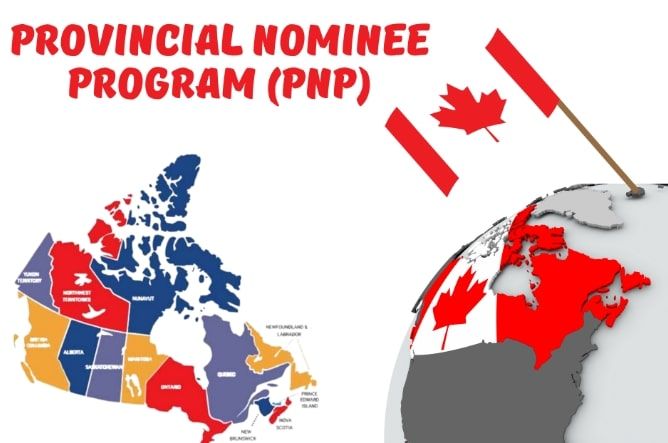How to Move to Canada with No Money & Start a New Life
Understanding Immigration Pathways
1. Express Entry Program
The Canadian Express Entry Program is a cornerstone of Canada’s immigration system, designed to facilitate the entry of skilled workers who can contribute to the country’s economy. The program operates on a points-based system known as the Comprehensive Ranking System (CRS), which evaluates candidates based on factors such as age, education, work experience, and language proficiency.
Find your Eligibility for FREE!!
To maximize your CRS score, consider the following strategies:
- Improve Language Skills: Proficiency in English or French can significantly boost your score. Consider taking language courses or practicing with native speakers to enhance your skills.
- Gain Relevant Work Experience: Work experience in your field can add valuable points to your CRS score. If possible, gain additional experience before applying.
- Obtain Educational Qualifications: Higher education degrees can increase your score. If you’re still studying, consider completing your degree before applying.
- Secure a Job Offer: A valid job offer from a Canadian employer can add points to your score and increase your chances of being selected.
For a detailed guide on how to apply for the Canadian Express Entry Program in 2025, check out this comprehensive resource.
2. Provincial Nominee Program (PNP)
The Provincial Nominee Program (PNP) is another viable pathway for immigrants. Each province in Canada has its own PNP, tailored to meet its specific economic and labor market needs. This program can be a faster route to permanent residency, especially if you have skills that are in demand in a particular province.
To increase your chances of being nominated through a PNP, consider the following tips:
- Research Provincial Needs: Each province has different labor market needs. Research the provinces to find out which ones are looking for workers with your skills.
- Apply to Multiple Provinces: Increase your chances of being nominated by applying to multiple provinces.
- Network with Provincial Employers: Building connections with employers in your desired province can increase your chances of securing a job offer and being nominated.
3. Temporary Foreign Worker Program
The Temporary Foreign Worker Program allows employers in Canada to hire foreign workers to fill temporary labor and skill shortages. This program can be a stepping stone to permanent residency. To learn more about how to get a job in Canada through this program, explore this detailed guide.
To make the most of this program, consider the following:
- Identify In-Demand Occupations: Research the occupations that are in demand in Canada and focus your job search on these areas.
- Prepare a Strong Application: Ensure your application is complete and highlights your relevant skills and experience.
- Secure a Job Offer: A valid job offer from a Canadian employer is essential for this program. Network with employers and attend job fairs to increase your chances of securing an offer.
4. Study Permit and Work Visa
Obtaining a study permit can also be a pathway to permanent residency. Many international students work part-time while studying and gain valuable Canadian work experience. After graduation, they can apply for a post-graduation work permit, which allows them to work in Canada for up to three years.
For those looking to obtain a Canadian work permit without IELTS, this guide provides valuable insights.
To maximize your chances of success through this pathway, consider the following:
- Choose the Right Program: Select a program of study that is in demand in Canada and aligns with your career goals.
- Maintain Good Academic Standing: Good academic performance can increase your chances of securing a post-graduation work permit.
- Gain Work Experience: Work part-time while studying to gain Canadian work experience, which can be valuable when applying for permanent residency.
Finding Employment Opportunities
1. High-Demand Jobs
Certain jobs in Canada are in high demand and often come with visa sponsorship. For instance, fruit picker jobs offer competitive wages and can be a great starting point. Similarly, warehouse worker jobs and care assistant jobs are also in demand and provide a stable income.
To secure a high-demand job, consider the following:
- Tailor Your Resume: Customize your resume to highlight the skills and experience relevant to the job you’re applying for.
- Prepare for Interviews: Research common interview questions and practice your responses to make a strong impression.
- Network with Industry Professionals: Attend industry events and connect with professionals in your field to learn about job opportunities.
2. Pet Care and Dog Training Jobs
If you have a passion for animals, consider exploring pet care jobs or dog training jobs. These roles often come with visa sponsorship and can be a fulfilling career path.
To succeed in pet care and dog training jobs, consider the following:
- Gain Relevant Certifications: Obtain certifications in pet care or dog training to enhance your credentials.
- Volunteer with Animal Organizations: Volunteering can provide valuable experience and help you build a network in the industry.
- Demonstrate Your Passion: Show potential employers your passion for animals and your commitment to their well-being.
3. Construction and Factory Jobs
The construction and manufacturing sectors are always looking for skilled workers. Construction jobs and factory jobs often offer work visa sponsorship, making them attractive options for new immigrants.
To secure a construction or factory job, consider the following:
- Highlight Your Skills: Emphasize your relevant skills and experience in your application.
- Obtain Safety Certifications: Many construction and factory jobs require safety certifications. Obtain these certifications to enhance your application.
- Network with Industry Professionals: Connect with professionals in the construction and manufacturing industries to learn about job opportunities.
4. Hotel and Hospitality Jobs
The hospitality industry is another sector that frequently offers jobs with visa sponsorship. Many hotels in Canada are looking for staff and provide accommodation as part of the employment package.
To succeed in hotel and hospitality jobs, consider the following:
- Demonstrate Customer Service Skills: Highlight your customer service skills and experience in your application.
- Be Flexible: Many hospitality jobs require flexibility in terms of working hours. Show potential employers your willingness to work flexible hours.
- Network with Industry Professionals: Attend hospitality industry events and connect with professionals to learn about job opportunities.
Affordable Housing and Living Expenses
1. Temporary Housing Options
Finding affordable temporary housing is crucial when you first arrive in Canada. There are several affordable temporary housing options available for immigrants, including hostels, shared accommodations, and subsidized housing.
To secure affordable temporary housing, consider the following:
- Research Housing Options: Look into different housing options and compare prices to find the most affordable option.
- Apply for Subsidized Housing: Many cities offer subsidized housing for low-income individuals. Apply for these programs to reduce your housing costs.
- Consider Shared Accommodations: Sharing accommodations with other immigrants can help reduce your housing costs.
2. Cheap Apartments
For long-term accommodation, consider looking for cheap apartments. This comprehensive guide provides tips on finding affordable apartments in Canada as a new immigrant.
To find cheap apartments, consider the following:
- Search Online: Use online platforms to search for cheap apartments in your desired area.
- Negotiate Rent: Don’t be afraid to negotiate the rent with the landlord to get a better deal.
- Consider Location: Apartments in less popular areas may be cheaper. Consider living in these areas to reduce your housing costs.
3. Cheapest Cities to Live In
Choosing the right city to live in can significantly impact your living expenses. Some of the cheapest cities in Canada for new immigrants include Montreal, Winnipeg, and Saskatoon. These cities offer a lower cost of living compared to larger metropolitan areas like Toronto and Vancouver.
To reduce your living expenses, consider the following:
- Research Cost of Living: Look into the cost of living in different cities and choose the one that fits your budget.
- Budget Wisely: Create a budget to manage your expenses and avoid overspending.
- Take Advantage of Free Activities: Many cities offer free activities and events. Take advantage of these to save money on entertainment.
Government Assistance and Support Programs
1. Government Assistance Programs
Canada offers various government assistance programs for new immigrants. These programs provide support with housing, healthcare, and employment. To learn more about these programs, check out this resource.
To make the most of government assistance programs, consider the following:
- Apply for All Available Programs: Research and apply for all government assistance programs you’re eligible for.
- Seek Help from Community Organizations: Many community organizations can help you navigate government assistance programs.
- Stay Informed: Keep up-to-date with changes to government assistance programs to ensure you’re receiving all the support you’re entitled to.
2. Scholarships and Visa Sponsorship
For those looking to pursue education in Canada, there are scholarships available that cover tuition and offer visa sponsorship. Explore this list of scholarships to find opportunities that can help fund your education and living expenses.
To secure a scholarship with visa sponsorship, consider the following:
- Research Scholarship Opportunities: Look into different scholarship opportunities and apply for those that fit your needs.
- Prepare a Strong Application: Ensure your scholarship application is complete and highlights your academic achievements and potential.
- Demonstrate Financial Need: Many scholarships are awarded based on financial need. Demonstrate your need for financial assistance in your application.
Building a Support Network
Building a support network is crucial when moving to a new country, especially when you’re starting with limited resources. A strong support network can provide emotional support, practical advice, and opportunities for personal and professional growth. Here’s how you can build a robust support network in Canada:
1. Community Organizations
Community organizations are invaluable resources for new immigrants. They offer a range of services, including language classes, job search assistance, and social events, all of which can ease your transition into Canadian life.
-
Research Local Organizations: Start by researching local community organizations that support immigrants. Look for organizations that offer the services you need, whether it’s language classes, employment workshops, or cultural integration programs. Websites like Settlement.org and local community centers are good starting points.
-
Attend Events: Community organizations often host events such as workshops, cultural festivals, and networking sessions. Attending these events can help you meet other immigrants and build your network. These events are also great opportunities to learn about Canadian culture and customs.
-
Volunteer: Volunteering with community organizations can be a rewarding experience. It allows you to give back to the community while building connections and gaining valuable experience. Volunteering can also enhance your resume and demonstrate your commitment to community service.
-
Join Support Groups: Many community organizations offer support groups for new immigrants. These groups provide a safe space to share experiences, seek advice, and build friendships. They can be particularly helpful in dealing with the emotional challenges of moving to a new country.
-
Access Employment Services: Some community organizations offer employment services, including resume writing workshops, interview preparation, and job fairs. These services can significantly improve your chances of finding employment in Canada.
2. Online Communities
Online communities and forums are excellent resources for information and support. They allow you to connect with people from all over the world who are going through similar experiences.
-
Join Relevant Groups: Join online groups that align with your interests and needs. Facebook groups, Reddit communities, and LinkedIn groups are great places to start. Look for groups dedicated to new immigrants in Canada, as well as groups related to your profession or hobbies.
-
Participate in Discussions: Actively participating in online discussions can help you build connections with other members. Share your thoughts, ask questions, and offer advice to others. The more you engage, the more visible you become, increasing your chances of building meaningful connections.
-
Share Your Experiences: Sharing your experiences can be therapeutic and informative for others. Write about your journey, the challenges you’ve faced, and the successes you’ve achieved. Your story can inspire others and provide valuable insights into the immigration process.
-
Seek Advice: Online communities are a wealth of knowledge. Don’t hesitate to seek advice on topics such as housing, employment, and cultural integration. Chances are, someone in the community has gone through a similar experience and can offer valuable insights.
-
Network Professionally: LinkedIn is a powerful tool for professional networking. Connect with professionals in your field, join industry-specific groups, and engage in discussions. Building a professional network can open up job opportunities and provide mentorship.
3. Cultural and Religious Organizations
Cultural and religious organizations can provide a sense of community and belonging. They often host events and activities that celebrate your culture and heritage, helping you stay connected to your roots while integrating into Canadian society.
-
Find Cultural Associations: Look for cultural associations that represent your country or region. These associations often host events, festivals, and language classes that can help you stay connected to your culture.
-
Join Religious Communities: If you’re religious, joining a local religious community can provide spiritual support and a sense of belonging. Religious communities often have programs and events that welcome new members and provide opportunities for volunteering and networking.
4. Educational Institutions
Educational institutions, such as universities and colleges, often have resources and support services for international students and new immigrants.
-
Access Student Services: If you’re a student, take advantage of the support services offered by your educational institution. These services can include academic advising, career counseling, and mental health support.
-
Join Student Clubs: Student clubs and organizations are a great way to meet people with similar interests and build a support network. Look for clubs related to your field of study, hobbies, or cultural background.
5. Professional Associations
Joining professional associations related to your field can provide valuable networking opportunities and resources for professional development.
-
Attend Industry Events: Professional associations often host industry events, conferences, and workshops. Attending these events can help you stay updated on industry trends, meet professionals in your field, and build your network.
-
Access Resources: Professional associations often provide resources such as job boards, mentorship programs, and professional development opportunities. Take advantage of these resources to enhance your skills and improve your employability.
6. Government Programs
The Canadian government offers various programs and services to support new immigrants. These programs can provide valuable resources and opportunities for building a support network.
-
Access Settlement Services: The Canadian government funds settlement services to help new immigrants integrate into Canadian society. These services can include language classes, employment workshops, and cultural orientation programs.
-
Apply for Government Assistance: The Canadian government offers various assistance programs for new immigrants, including housing assistance, healthcare, and employment support. Research and apply for these programs to access the resources you need.
Building a support network is a continuous process that requires effort and engagement. By actively seeking out community organizations, online communities, cultural and religious organizations, educational institutions, professional associations, and government programs, you can build a robust support network that will help you thrive in your new life in Canada.
Improving Your Chances of Getting Hired
1. Networking
Building a professional network can significantly improve your chances of getting hired. Attend industry events, join professional associations, and connect with people in your field on platforms like LinkedIn.
To build a professional network, consider the following:
- Attend Industry Events: Attend industry events and conferences to meet professionals in your field.
- Join Professional Associations: Join professional associations to connect with other professionals and gain access to resources.
- Leverage Social Media: Use social media platforms like LinkedIn to connect with professionals in your field and showcase your skills and experience.
2. Skill Development
Continuously developing your skills can make you a more attractive candidate. Consider taking online courses or obtaining certifications relevant to your industry.
To develop your skills, consider the following:
- Identify In-Demand Skills: Research the skills that are in demand in your industry and focus on developing these skills.
- Take Online Courses: Enroll in online courses to gain new skills and enhance your existing ones.
- Obtain Certifications: Obtain certifications relevant to your industry to enhance your credentials.
For more tips on improving your chances of getting hired in Canada, check out this guide.
Conclusion
Moving to Canada with no money is a challenging but achievable goal. By understanding the various immigration pathways, finding employment opportunities, securing affordable housing, and building a support network, you can successfully start a new life in Canada. With determination and strategic planning, you can overcome financial barriers and create a prosperous future in this welcoming country.
This guide has provided a comprehensive overview of the steps involved in moving to Canada with no money. By following these steps and utilizing the resources provided, you can make your dream of living in Canada a reality.







